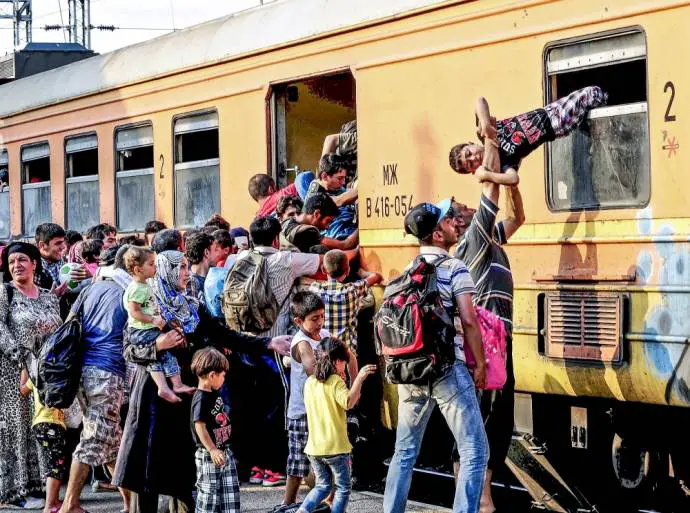All our election coverage can be found here, while our profiles of the major parties are here.
There seems to be only one point of agreement among the parties: that Slovenia is facing new challenges in the field. However, the parties propose very different approaches to addressing these challenges.
Although some, like the newcomer Marjan Šarec List (LMŠ), only offer a few general views about security issues in their manifesto, several parties, like New Slovenia (NSi), Social Democrats (SD) and the Good State, focus on issues in detail.
Migrations are one of the most prominent topics of this campaign, with the Democrats (SDS) and NSi advocating stricter asylum requirements and consistency in rejecting illegal migrants.
The SDS would also prohibit burkas and niqabs and define recruiting and aid to terrorist organisations or countries as criminal acts.
As regards the wire fencing Slovenia erected along segments of its border with Croatia in early 2016, most parties believe that the fence should be kept.
Interestingly, this position is held also among those who believe that the fence does not actually have any relevant effect - a view expressed by the Pensioners' Party (DeSUS), whose president has served as foreign minister since 2012.
DeSUS also believes that Slovenia should bring more police to the area, as well as medical and humanitarian teams.
On the other hand, the opposition Left says that the fence should be removed immediately, labelling it an "inhumane, expensive and environmentally-unfriendly measure". The same position was echoed by the Pirates.
Many parties are against the refugee quota system, with the Pirates labelling quotas "unrealistic" and the NSi saying that Slovenia should only take in as many refugees as it is capable of taking care of.
Interestingly, the Modern Centre Party (SMC) of Prime Minister Miro Cerar did not provide answers to the STA's questions about the fence and refugee quotas.
Probably the most radical answer comes from the Party of the Slovenian Nation (SSN). The non-parliamentary party proposes that Slovenia should deepen and widen the beds of border rivers, and build additional canals and ponds, which could also be useful for irrigation.
The NSi, SD, the Good State and the SMC believe Slovenia's police and military forces are in need of reform to secure, above all, social safety of soldiers and police officers, many of whom are paid rather poorly.
The SDS, Slovenia's biggest opposition party, believes that the police force needs to be "de-politicised", which would improve the security situation in the country and restore trust in the police.
The Left, the farthest on the political spectrum from the SDS among parliamentary parties, would meanwhile like to downsize the police through attrition.
Cyber security is also among the top security issues for many parties. The Good State has drafted an operative strategy, while the SD and SMC advocates a national cyber security system to protect critical infrastructure in the country.
As regards intelligence and security services, parties point to what they say are poor conditions at the SOVA intelligence agency, where employees recently went on strike.
The NSi believes that SOVA and the military intelligence agency OVS should be modernised and reorganised, and that Slovenia needs to set up an counter-terrorism system.
A number of parties also underline the importance of disaster relief and rescue services, which are provided above all by firefighters.
DeSUS proposes an insurance-covered health check every five years for active firefighters, while the LMŠ would introduce a special status for volunteer firefighters and rescue service members and upgrade their equipment.
The Good State and NSi share similar views, with the former also advocating financial relief for employers of volunteers participating in relief and rescue efforts.






